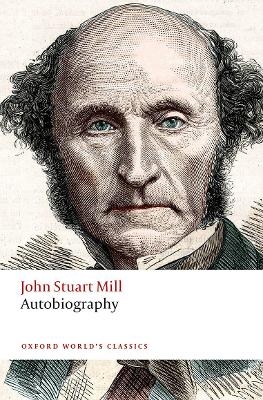
Autobiography
Seiten
2018
Oxford University Press (Verlag)
978-0-19-875960-7 (ISBN)
Oxford University Press (Verlag)
978-0-19-875960-7 (ISBN)
J. S. Mill was the greatest British philosopher of the nineteenth century. Mill's purpose in writing his Autobiography was to set down his own struggle for individuality, and vindicate his life to himself and others.
It may be useful that there should be some record of an education which was unusual and remarkable
John Stuart Mill (1806-73), philosopher, economist, and political thinker, was the most prominent figure of nineteenth century English intellectual life and his work has continuing significance for contemporary debates about ethics, politics and economics. His father, James Mill, a close associate of the utilitarian philosopher Jeremy Bentham, assumed responsibility for his eldest son's education, teaching him ancient Greek at the age of three and equipping him with a broad knowledge of the physical and moral sciences of the day.
Mill's Autobiography was written to give an account of the extraordinary education he received at the hands of his father and to express his gratitude to those he saw as influencing his thought, but it is also an exercise in self-analysis and an attempt to vindicate himself against claims that he was the product of hothousing. The Autobiography also acknowledges the substantial contribution made to Mill's thinking and writings by Harriet Taylor, whom he met when he was twenty-four, and married twenty-one years later, after the death of her husband. The Autobiography helps us understand more fully some of the principal commitments that Mill's political philosophy has become famous for, in particular his appreciation of the diversity, plurality, and complexity of ways of life and their possibilities.
This edition of the Autobiography includes additional manuscript materials from earlier drafts which demonstrate the conflicting imperatives that influenced Mill'schoice of exactly what to say about some of the most significant episodes and relationships in his life. Mark Philps introduction explores the forces that led Mill to write the 'life' and points to the tensions in the text and in Mill's life.
It may be useful that there should be some record of an education which was unusual and remarkable
John Stuart Mill (1806-73), philosopher, economist, and political thinker, was the most prominent figure of nineteenth century English intellectual life and his work has continuing significance for contemporary debates about ethics, politics and economics. His father, James Mill, a close associate of the utilitarian philosopher Jeremy Bentham, assumed responsibility for his eldest son's education, teaching him ancient Greek at the age of three and equipping him with a broad knowledge of the physical and moral sciences of the day.
Mill's Autobiography was written to give an account of the extraordinary education he received at the hands of his father and to express his gratitude to those he saw as influencing his thought, but it is also an exercise in self-analysis and an attempt to vindicate himself against claims that he was the product of hothousing. The Autobiography also acknowledges the substantial contribution made to Mill's thinking and writings by Harriet Taylor, whom he met when he was twenty-four, and married twenty-one years later, after the death of her husband. The Autobiography helps us understand more fully some of the principal commitments that Mill's political philosophy has become famous for, in particular his appreciation of the diversity, plurality, and complexity of ways of life and their possibilities.
This edition of the Autobiography includes additional manuscript materials from earlier drafts which demonstrate the conflicting imperatives that influenced Mill'schoice of exactly what to say about some of the most significant episodes and relationships in his life. Mark Philps introduction explores the forces that led Mill to write the 'life' and points to the tensions in the text and in Mill's life.
Mark Philp is Emeritus Fellow of Oriel College, Oxford. His recent books include Political Conduct (Harvard UP, 2007) and Reforming Ideas in Britain (CUP, 2013). For Oxford World's Classics he has edited Paine's Rights of Man, Common Sense, and Other Political Writings, Godwin's An Enquiry concerning Political Justice and with Frederick Rosen, John Stuart Mill's On Liberty, Utilitarianism and Other Essays.
Introduction
Note on the Text
Select Bibliography
A Chronology of John Stuart Mill
AUTOBIOGRAPHY
Appendix: Additional Textual Material
Explanatory Notes
Index and Glossary of Persons
| Erscheinungsdatum | 05.03.2018 |
|---|---|
| Reihe/Serie | Oxford World's Classics |
| Verlagsort | Oxford |
| Sprache | englisch |
| Maße | 130 x 196 mm |
| Gewicht | 194 g |
| Themenwelt | Literatur ► Biografien / Erfahrungsberichte |
| Geisteswissenschaften ► Philosophie ► Philosophie der Neuzeit | |
| Geisteswissenschaften ► Sprach- / Literaturwissenschaft ► Anglistik / Amerikanistik | |
| Geisteswissenschaften ► Sprach- / Literaturwissenschaft ► Literaturgeschichte | |
| ISBN-10 | 0-19-875960-6 / 0198759606 |
| ISBN-13 | 978-0-19-875960-7 / 9780198759607 |
| Zustand | Neuware |
| Haben Sie eine Frage zum Produkt? |
Mehr entdecken
aus dem Bereich
aus dem Bereich


